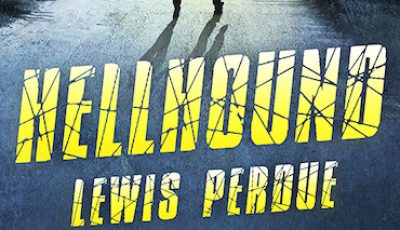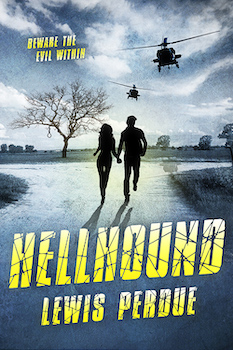

Latest Books Hellhound by Lewis Perdue
 UCLA neurosurgeon Brad Stone believes he had long ago escaped his Faulknerian heritage as the disinherited scion of Mississippi plantation owners and powerful, racist politicians.
UCLA neurosurgeon Brad Stone believes he had long ago escaped his Faulknerian heritage as the disinherited scion of Mississippi plantation owners and powerful, racist politicians.
But when a civil rights lawyer asks his help to save the life of a white racist convicted of killing a Black man, a dark legacy of hideous human medical experiments emerges. Events hurl him into the diabolical web of Xantaeus, a secret military drug that turns soldiers into bloodthirsty killers with no mercy capable of creating a level of inhuman battlefield slaughter never before seen.
Stone’s efforts to stop Xantaeus deployment on US troops make him the target of a right-wing billionaire presidential contender who owns the company producing the drug. Stone must also confront his ancestry’s unvanquished racial demons and is forced to grapple with the reasons why good people can do bad things.
Lewis Perdue recently spent some time with The Big Thrill discussing his latest thriller, HELLHOUND.
What attracts you to this book’s genre?
The ability to adapt little known facts and concepts then weave them into a “what might happen” scenario that has consequences for millions of people. In some cases, my “what might happen” actually happened.
What was the biggest challenge this book presented? What about the biggest opportunity?
Trying to describe difficult concepts like consciousness and quantum physics in a way that the average intelligent reader could understand.
Was there anything new you discovered or that surprised you as you wrote this book?
How the true-life military pharmaceutical would drastically alter warfare and make it more brutal by eliminating the average soldier’s own sense of mercy and humanity.
No spoilers, but what can you tell us about your book that we won’t find in the jacket copy or the PR material?
A vast amount of HELLHOUND is factual, and accurately reflects how the author’s Faulknerian heritage of wealth and political clout created and maintained Jim Crow Segregation. Which is why the family had to disinherit him.
What authors or books have influenced your career as a writer, and why?
Philip K. Dick, Isaac Asimov, Robin Cook, Robert Ludlum, Frederick Forsyth, Len Deighton, Ken Follett, Bill Granger, Dick Francis, Ross MacDonald, Barbara Tuchman, Bart Ehrman, Karen Armstrong, John Steinbeck, Ernest Hemingway, Soren Kierkegaard, Oliver Sacks, Roger Penrose.
Lewis Perdue is the author of 20 published books: 13 thrillers (some bestselling, including three co-authored with Lee Goldberg). Lew has also written seven nonfiction works ranging from wine to technology.
He is currently a biomedical researcher affiliated with the University of California San Francisco School of Medicine, publishes Wine Industry Insight (for the trade), is an algorithm inventor at Revolution Algorithms, and consults with early stage technology companies. He lives near Sonoma, California.
Lew is an honors graduate of Cornell University, where he studied organic chemistry, biology, and communications. Financially self-supporting at age 18, Perdue financed his education by working full-time at two Gannett daily newspapers.
He has worked as an investigative journalist in Washington, DC for Jack Anderson and has written for The Washington Post, Washington Monthly, The Nation, and other publications.
He’s served as a columnist for The Wall Street Journal Online, CBS Marketwatch, and TheStreet.Com.
In addition to journalism, Lew has been chief marketing officer for a technology company (Transpositional Modulation Technologies), and served as a top staff member for US Senator Thad Cochran and Mississippi Governor Bill Waller. He’s also been a managing director for MSLGroup of Publicis Worldwide.
Lew is a native of the Mississippi Delta, and—like the hero of his latest thriller—is the disinherited scion of a politically powerful, Faulknerian heritage.
To learn more about the author, please visit his website.
- LAST GIRL MISSING with K.L. Murphy - July 25, 2024
- CHILD OF DUST with Yigal Zur - July 25, 2024
- THE RAVENWOOD CONSPIRACY with Michael Siverling - July 19, 2024

